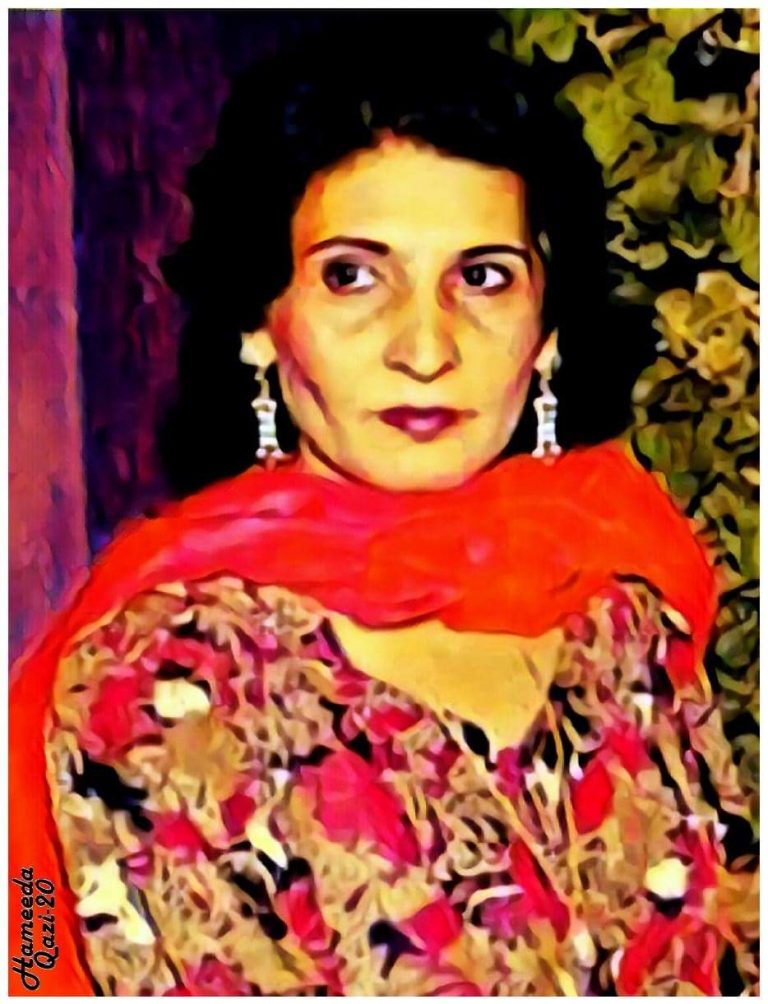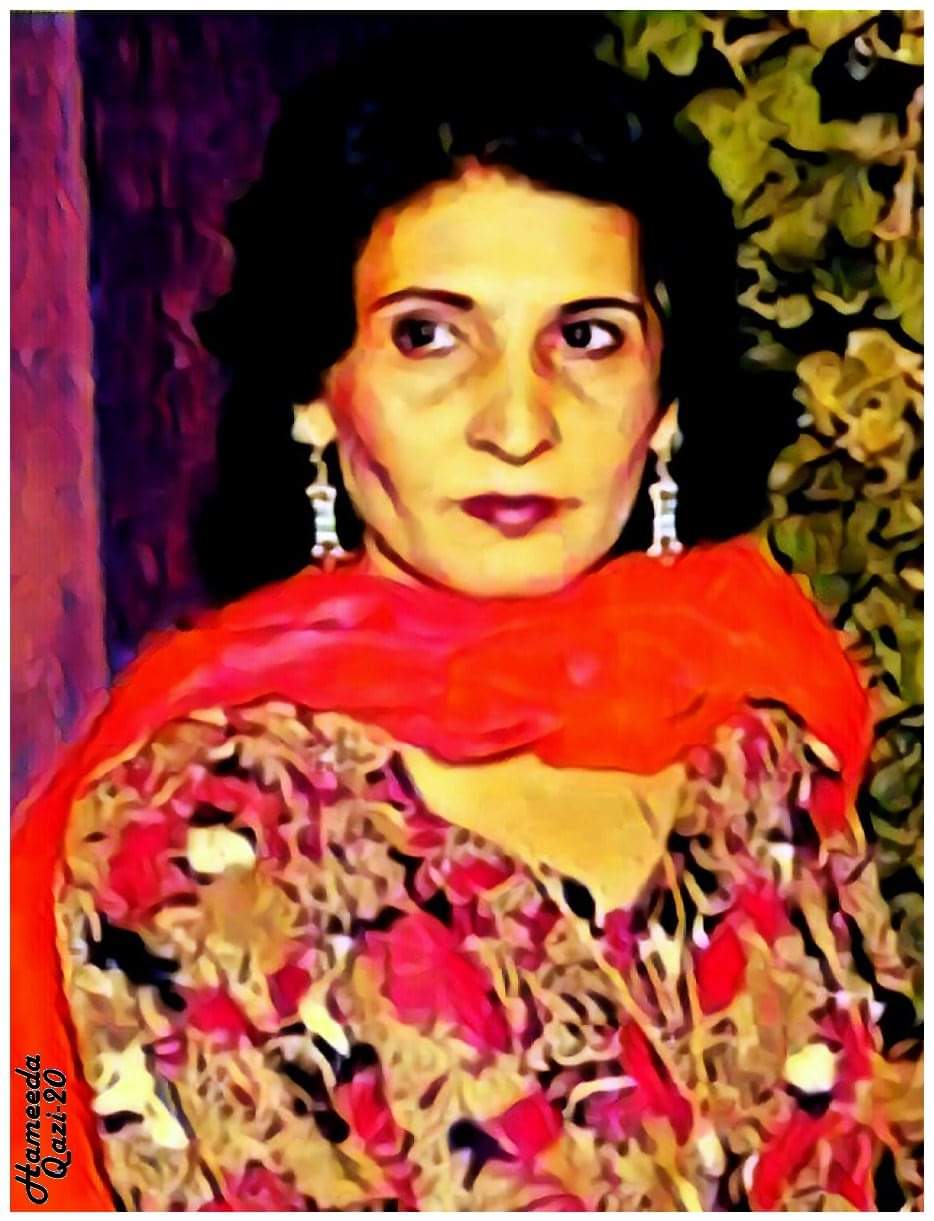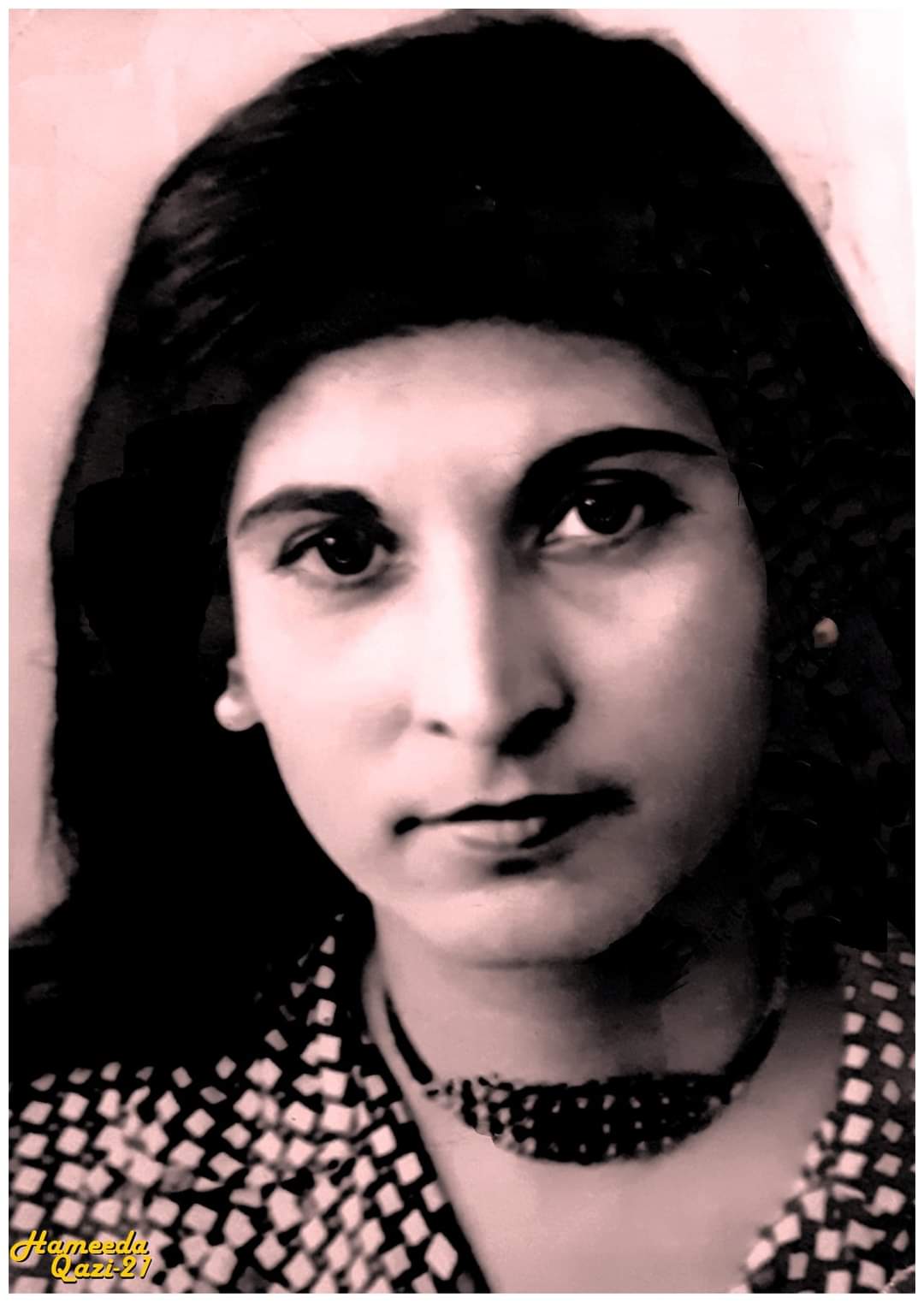
 Veena Shringi, hailing from Sindh and settled in Delhi, India, is a multi-faceted personality – a poetess, writer, broadcaster, and social worker. She is author of 31 books. Her first book was ‘Kian Visariyan Verheechan’ (Can’t Forget My Loved Ones), the memoirs of her life from childhood to the time she migrated to India, published in Sindhi language in 1984. Now the English version of the same book is under publication. Sindh Courier is publishing a few chapters of book with consent of the author.
Veena Shringi, hailing from Sindh and settled in Delhi, India, is a multi-faceted personality – a poetess, writer, broadcaster, and social worker. She is author of 31 books. Her first book was ‘Kian Visariyan Verheechan’ (Can’t Forget My Loved Ones), the memoirs of her life from childhood to the time she migrated to India, published in Sindhi language in 1984. Now the English version of the same book is under publication. Sindh Courier is publishing a few chapters of book with consent of the author.
ASHURA
{Translator’s Note: In Islam, Ashura is a Shia festival observed on the tenth day of Muharram in the Islamic calendar to commemorate the death of the martyr Imam Hussein bin Ali at the Battle of Karbala in 61 AH (680AD). In Sindh, it is a national holiday where ethnic and religious communities including Hindus participate in it. Word Ashura means the tenth day}
Behind our house, there is an open space. In the front, there is a house where Ashura is held. Let me call it Ashura house. Every year in the month of Muharram, crowds increase. As the mourning day comes near, chanting of “Ali Moula Ya Hussain” increases day by day. We feel like going and joining in, but it is not possible. During Ashura, when processions used to arrive, we used to run to Shivala and stand behind the door to watch Ashura. In Shahdadkot we have our Mandir. The Mandir and the house where Ashura was observed have a common wall. My grandfather and our neighbors were friendly with each other and used to greet each other. There was no question of enmity on account of religion. Not only we but other Hindu girls and women used to watch Ashura from there. We, Hindus used to feel proud as Shivala was our personal property. The house of God can’t be any body’s personal property. But, for keeping the records right in government registers, that property acquires the name of the owner. On that particular occasion, we used to feel very proud because it was our property and it was up to us to allow entry to the one who is liked by us. For others, it could be Section 144 . On that day we used to take revenge from those who used to fight with us. We used to prohibit their entry and prevent them from watching Ashura procession from our Shivala. To enforce our right we used to keep closing and opening the door of Shivala to keep the unwanted people out. We used to waste a lot of time opening and closing the door. By doing so we used to ensure our right as the owners of the Shivala.
Owner of the Ashura house, Gulu was like us. He was a person, forty or forty-five years old. The whole year he never cared for the Ashura house. But, during Muharram, he used to come for the upkeep of the house. He used to smoke marijuana the whole time. He was respectful to us and our Shivala. He never looked in our direction with bad intention, nor would allow anyone else to do so. He had had the same respect for our Shivala. The mourning used to start quite some time early. The heartbreaking poems, eulogizing and recounting the events of Karbala were heard with bitter crying of those taking part in the event.
 All sisters and brothers used to sleep on the cots laid down in a row in the courtyard. There used to be fifteen or twenty cots in the courtyard. My father used to say “Have you fellows gone mad sleeping in a row like in the hospital?” In the center we three sisters used to sleep and on the sides, brothers used to sleep. We used to wait for Ashura processions to arrive. We used to run to and fro to the main door of the courtyard to watch Ahura processions.
All sisters and brothers used to sleep on the cots laid down in a row in the courtyard. There used to be fifteen or twenty cots in the courtyard. My father used to say “Have you fellows gone mad sleeping in a row like in the hospital?” In the center we three sisters used to sleep and on the sides, brothers used to sleep. We used to wait for Ashura processions to arrive. We used to run to and fro to the main door of the courtyard to watch Ahura processions.
One night, an Ashura procession of Muhajirs was approaching. When we heard the drum beat and we started running towards the door jumping over the cots laid down in the courtyard. In the end, there was a cot for my mother. With our running Mother thought that some thieves have entered the house, and got up with a fright. We realized that the mother was in a stupor. We hugged mother and told her “Aayee! We are going to see Ashura procession.”
When the mother realized the situation she remained silent. We could understand the condition of our mother who was all shaken up. We all hugged her and said “Aayee, we ran because we wanted to see the Ashura procession … There is nothing …There is nothing.” We could see the anger and shock on the face of the mother. But, somehow she overlooked our mischief.
In the meantime, the procession had arrived. The mourning used to start many days in advance. We had a bungalow with a terrace. All the children from the neighborhood used to assemble in our bungalow. There were more boys than girls. I can say that I was the leader of the girls. We used to stand in a circle. We had pieces of ropes in our hand in place of iron chains which were usually used to beat the breast in the mourning processions. We used to copy the mourners and beat our breast with the ropes with shouts of “Ali Moula Ya Hussain”. We used to increase the tempo of beating ourselves with ropes. Our grandfather was suspicious that the children are up to something. Sometimes, accidentally, words “Ali Moula Ya Hussain” used to come out of our mouth. Parents used to get angry “Have you gone crazy, why you are mourning?”

One day, my grandfather while spying upon us, caught us beating our breast with ropes with the chanting of “Ali Moula Ya Hussain”. He got wild and started beating all with his walking stick. While running, I dashed against my mother. She got very angry and said, “Being a girl, you are beating your breast in mourning along with the boys …You should be ashamed of yourself.” While breast-beating and going in circles, the dust that rose was on our faces. We were mourning the sacrifice of Imam Hussain and Imam Hassan, but there was no one to offer water to us. On the other hand, my grandfather continued showering abuses upon us. He told my mother “Your daughter has got spoilt along with the boys … Did you see her breast-beating and mourning?” My brothers got choicest of abuses from my grandfather and I also was reprimanded. I was shivering with fear of getting beaten up with the stick of grandfather. Neighborhood boys and girls got plenty of beating from my grandfather. I don’t know how I got saved. But my mother continued scolding me. Our maidservants also sided with my mother with a taunt, saying “What has the world come to? Daughter of a Brahmin is beating her breast and mourning … Shri Ram … Guru Baba … Have mercy … Children of a Brahmin are chanting Hassan and Hussain.” Also our old servant Jalal Khan started scolding us. Everyone around admonished and reprimanded us. I felt hurt. I forgot about the scolding of my mother father and grandfather. Mother and father used to respect Jalal Khan. I forgave Jalal Khan too as he used to shower his love upon me. But, I was very angry about the taunts of our maidservants. I felt like getting hold of their hair and throwing them out of the house.
After all, this that happened, I could hear the drumbeat with and shouts of “Ali Moula Ya Hussain”. We used to eagerly wait for this day. Not only us but all the Hindus in the neighborhood used to wait for the Ashura processions. Many hawkers used to line up the street with their goodies like sweet and savoury snacks. There were stalls of colored sorbet. We used to purchase sweets and sorbet. The sweets hardly had any taste as compared to homemade sweets. The sorbet was also made with saccharine. But, yet we enjoyed these as children.
On the day of Ashura, there used to be rush of bullock carts. Carts drivers used to quench their thirst by drinking sorbet. We did not feel is to be wrong to drink sorbet from the dirty dented tumblers used by Muslims, not realizing that we were Brahmin children. I don’t know what sort of frenzy it was. When Ashura processions arrived, all the girls and ladies used to peep through the grill of the Otaak door. Ladies used to push the girls and used to tell them “you go out and watch.” Ladies used to offer of salt, and some used offer sorbet and savoury eats. While mourning and breast-beating with iron chains there used to a lot of blood. Some used to rub ash on their wounds. Ashura processions with Taboot . People used to wait for one particular Ashura procession that was of prostitutes. There used to be special police cordon for that procession. The women in the procession were not so very beautiful, but still there used to lot many spectators for that particular procession of prostitutes. For them, it was not a day of mourning but to display themselves. The women used to be in black clothes, with open hair and used beat their shoulders as a sign of mourning. Muslim men and boys used to follow the procession of prostitutes. They used to wear silky clothes, some used to be in white salwar kurtas. They used to wear gold chains and mirror work caps. Some used to wear colorful scarves around their neck. There used to be many policemen with this particular procession. The boys of our family used to give running commentary to the women who were watching behind the Otaak door. They used to tell them the gossip about who was who, like this fellow is landlord’s son, or he is a Baloch, he is a Chandiya or a Khokhar and so on. The women behind the Otaak door used to enjoy seeing those people in person about whom they used to hear juicy stories at home.
Once our grandfather came and shouted: “The processions are over, why you are still standing there?” This had reference to the gossip described above. Our grandfather was very strict about the respect of women. According to him, women should remain within four walls of the home; they should not come with an open face in front of strangers. According to him, women of the family are to be regarded with veneration. Someone amongst the people present said, “Ashura processions are gone, but handsome boys are still around.” Hearing such a remark, ladies felt awkward and ran away. Father, mother, grandfather and all had a hearty laugh.
______________________